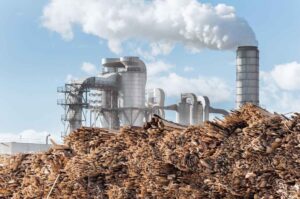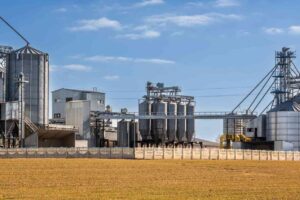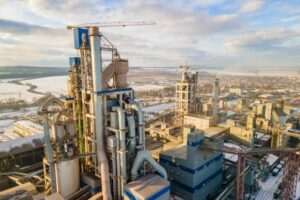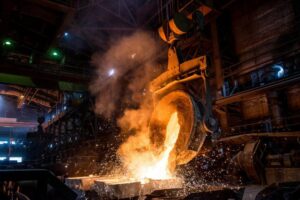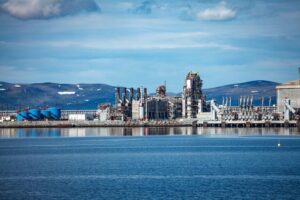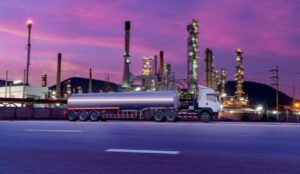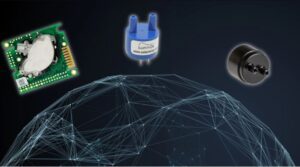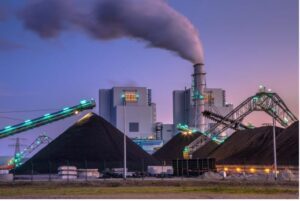When it comes to analyzing and understanding the different types of gases, having the right gas analyzer can make all the difference between accurate results and inaccurate readings.
Whether you’re a business owner in need of high-quality gas analysis or an environmental consultant looking to collect data on trace impurities in air samples, there is a type of gas analyzer that fits your needs.
Today we will provide an overview of the four main categories of gas analyzers available—including their features, advantages, disadvantages, price points, and more–so you can determine which one is best for you!
What Is a Gas Analyzer and What Are Its Uses?

A gas analyzer is an instrument used to measure the concentrations of different gases in a sample. This type of device has many uses, such as measuring flue gas emissions from combustion sources, ambient air monitoring, safety analysis in industrial settings, and environmental research.
Gas analyzers use different technologies to determine specific atmospheric parameters including oxygen levels and carbon monoxide content.
They can also detect potential toxins like benzene, formaldehyde, and sulfur dioxide. The instruments are equipped with sophisticated sensors that enable them to acquire real-time data from surrounding environments.
In terms of applications, gas analyzers help maintain the safe operation of combustion facilities such as power plants or incinerators by ensuring their emissions meet regulatory requirements for airborne pollutants.
They’re also used on construction sites since hazardous dust like asbestos must be regulated when demolishing older buildings or renovating existing structures.
Finally, these devices can analyze natural processes like photosynthesis by measuring changes in oxygen levels over time during plant growth experiments.
Overall, gas analyzers provide an effective tool for detecting changes in air quality that would otherwise go undetected due to the limits of human detection technology alone.
Their ability to accurately monitor multiple components at once makes them invaluable pieces of analytical equipment across a variety of industries and disciplines worldwide.
The Different Types of Gas Analyzers on The Market Today!
For those seeking gas analysis solutions, the range of gas analyzers available on the market can be overwhelming. That’s why we’ve broken down the four main categories of gas analyzers to help you decide which type best suits your needs.
- O2 Gas Analyzer
The Oxygen O2 analyzer is a device used to measure levels of oxygen in different applications, including combustion analysis. Like other gas analyzers, O2 analyzers are available in a range of types and sizes to suit various applications.
The more advanced O2 analyzers may offer temperature and pressure compensation, as well as data logging capabilities.
- CO Gas Analyzer
When it comes to gas analysis, the CO analyzer is one of the most commonly used devices. It measures levels of carbon monoxide (CO) in a variety of applications such as vehicle exhaust emissions and combustion processes like welding or power plant operations. The CO analyzer can also be used for air quality monitoring.
- Combustible Gas Analyzers
Combustible gas analyzers are designed to measure the levels of flammable or combustible gases in a certain environment, including methane and propane.
They are commonly used in industrial applications where flammable gases can be hazardous, such as oil refineries or chemical plants.
Combustible gas analyzers come with a range of features including adjustable alarms that alert operators when dangerous gas levels are detected.
- Hydrogen Sulfide Analyzers
Hydrogen sulfide in air or water can cause serious problems for humans in concentrations as low as 0.1 ppm (parts per million).
Hydrogen sulfide analyzers are used to accurately measure the levels of this gas, and alert operators when unsafe hydrogen sulfide is present.
- Emission Gas Analyzers
Emission gas analyzers are a type of gas analyzer that measure the concentration of pollutants in exhaust gasses, such as carbon monoxide (CO), hydrocarbons, and nitrogen oxides (NOx). Emission analyzers are commonly used in vehicle emission testing and similar applications.
- Total Organic Carbon Gas Analyzers
Total organic carbon (TOC) analyzers are used to measure the amount of total dissolved and suspended organics in a sample. This type of gas analyzer is commonly used for environmental monitoring, water quality testing, and more.
How Do You Know Which Type of Gas Analyzer Is Right for You?

Now that you’re familiar with the different gas analyzers available on the market, it’s time to decide which type is best for your particular application.
- Consider The Type of Gas You Need to Measure:
Different types of gas analyzers are designed for different gases, such as carbon dioxide or oxygen. You should choose one that would suit your particular application best.
- Evaluate Your Budget:
Some gas analyzers can be quite expensive, so you should consider how much money is available to invest in one before deciding which type would work best for your application.
- Determine The Accuracy And Precision You Need:
Different types of gas analyzers provide different levels of accuracy and precision. Make sure the one you choose is suitable for your application’s needs, both in terms of data resolution as well as repeatability over time.
- Think About Portability:
Depending on your application, you may need a gas analyzer that’s portable enough to move around easily or one that can be fixed in place if necessary.
This is an important factor to consider when choosing which type of gas analyzer is right for you.
- Consider The Maintenance Requirements:
While some gas analyzers are relatively low maintenance, others may require more frequent attention to keep them running optimally. Make sure you’re aware of any potential service requirements before committing to a particular type.
- Evaluate User-Friendliness:
Are you looking for a gas analyzer with an intuitive interface that makes it easy to use, or do you prefer one with more complex controls and settings? Make sure the type of device fits your comfort level.
- Explore The Customer Service And Technical Support Options:
It’s important to know what kind of help is available in case you run into any problems with your gas analyzer, so be sure to check out EseGas’s unparalleled customer service and technical support options.
- Do Your Research:
Finally, make sure you’ve done enough research before purchasing to ensure that the type of gas analyzer you choose is truly right for your application – and for you!
At EseGas, we’re dedicated to helping our customers find the perfect gas analyzer solution – so don’t hesitate to let us know if you need any assistance in choosing which type is right for your needs.
How To Use A Gas Analyzer?
Isn’t sure how to use a gas analyzer? Don’t worry! Here is a quick guide on how to use a gas analyzer.
- Make Safety Your Number One Priority:
Gas analysis can be dangerous if not done properly and with the right equipment. Be sure to use protective equipment such as gloves, glasses, and dust masks when working with gas analyzers.
- Prepare The Area:
Before beginning any work on a gas analyzer it is important to make sure that you have cleared away all combustible material from the area.
- Read And Understand All Instructions:
To provide accurate results, you must read and understand all instructions included with the gas analyzer. As the devices can be complex, you should make sure that any questions are answered before use.
- Set Up the Gas Analyzer:
Once an area is clear and all instructions have been read it’s time to set up the gas analyzer. Follow instructions carefully to ensure correct installation and use of the device according to manufacturer guidelines.
- Turn On the Gas Analyzer:
When you have finished setting up your gas analyzer, it’s time for power-up. Be sure to check that all necessary switches and settings are correct before turning it on for the first time.
- Learn How to Use the Gas Analyzer:
You must understand exactly what your device is capable of and how to use it. Take the time to learn all of its features so that you can get accurate results every time.
- Keep Your Gas Analyzer Clean:
For a gas analyzer to provide an accurate reading you must regularly clean and service it. Regular maintenance will help ensure that your device continues to work correctly for many years into the future.
Tips For Maintaining Your Gas Analyzer!
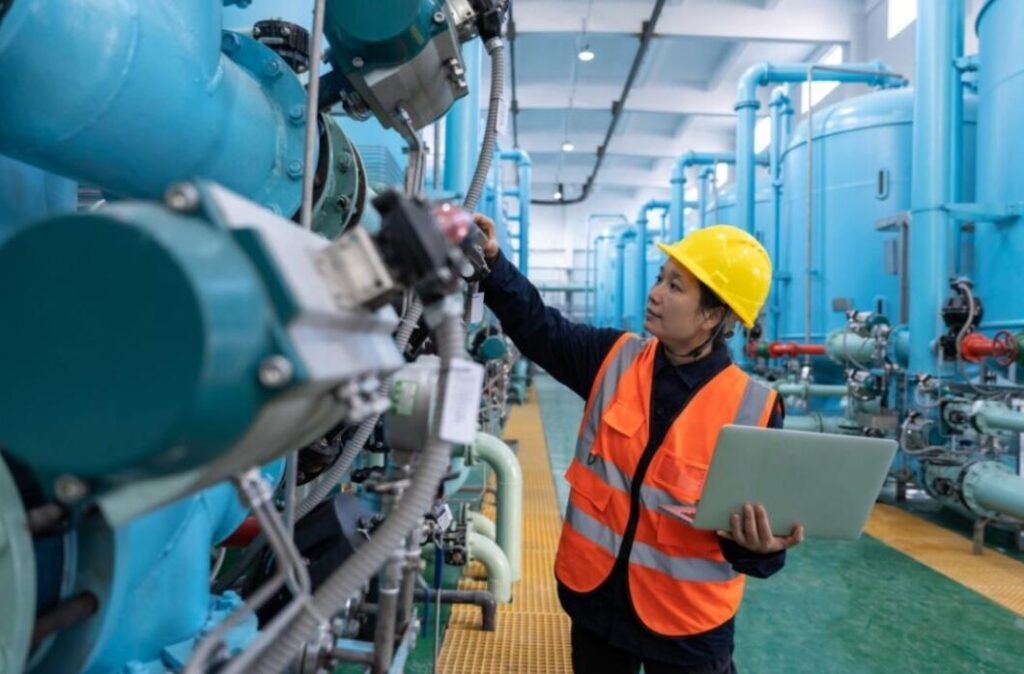
Any gas analyzer used in a laboratory or industrial setting must be regularly maintained to ensure accurate readings and reliable performance. Here are some tips for maintaining your gas analyzer:
- Ensure that the gas analyzer is calibrated regularly and according to manufacturer instructions. Regularly calibrating your gas analyzer will help ensure accuracy when analyzing gases, helping you get reliable readings every time!
- Keep your sensors clean and replace them if necessary, according to the manufacturer’s instructions. Cleaning or replacing worn-out sensor elements can help ensure you get accurate readings from your gas analyzer.
- Make sure the gas analyzer is in a clean, dust-free environment. Dust and dirt can interfere with readings from your device.
- Don’t forget to check for other factors that may impact measurements such as temperature or humidity changes over time.
- Avoid exposing your gas analyzer to high temperatures and direct sunlight, as this can lead to inaccurate readings or damage the device itself!
- Regularly back up data from your gas analyzer so that you can refer to it in the future if needed.
- Keep your gas analyzer up to date with any software or firmware updates available from ESEGAS, this will ensure that you get ongoing optimal performance!
Conclusion
In conclusion, we have explored the different kinds of gas analyzers and the features each type brings to help you determine which one is right for your needs.
While there are many gas analyzers out there, with EseGas you can be sure that help is not far away if you need assistance.
Our professional team of experts will work with you directly to find the exact analyzer model to fit the parameters of your budget, chemistry, and safety regulations that you may need to consider.
We understand how important it is to get the right model, so let us show you how we can make that process much easier.
So take a look at our product selection today and feel free to reach out if you require any advice or guidance on choosing your perfect gas analyzer!




